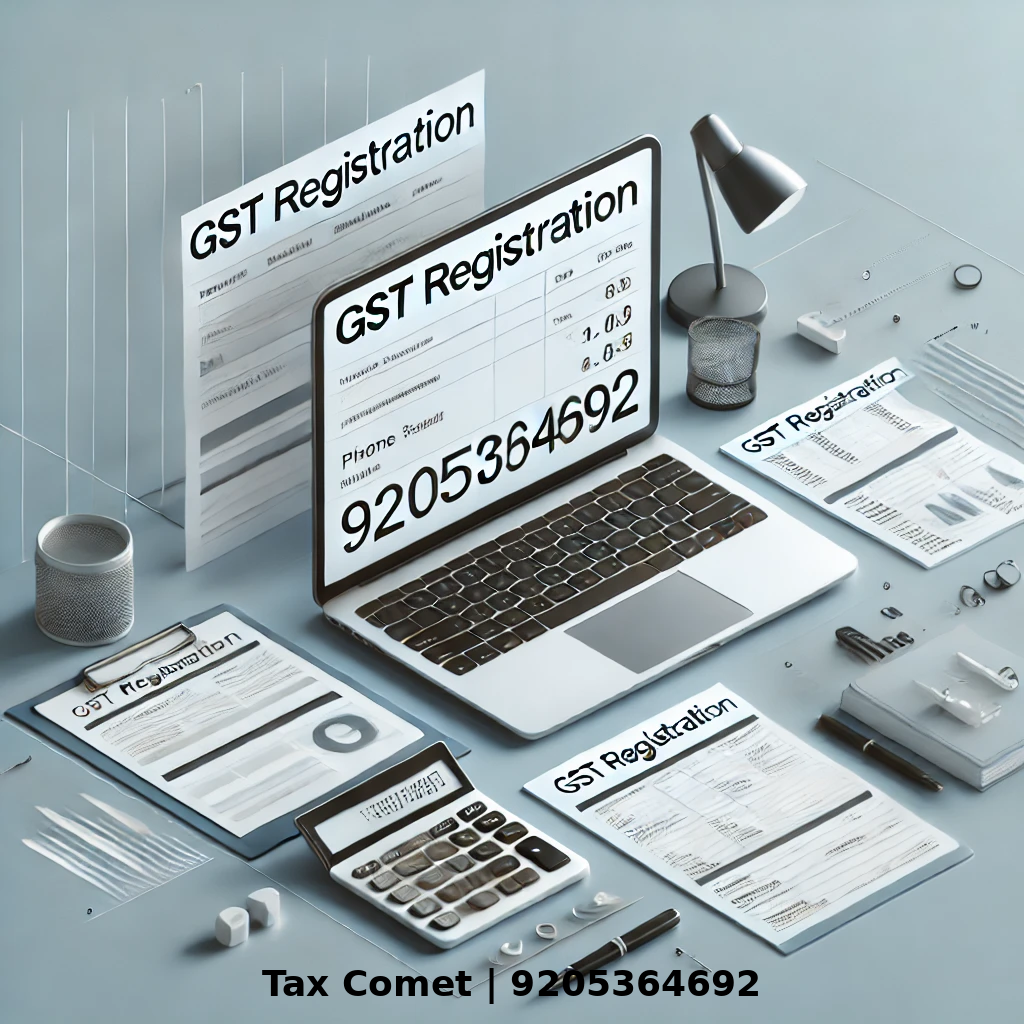What is GST Registration, and Why Does It Matter?
If you’re running a business in India, understanding GST (Goods and Services Tax) isn’t optional—it’s essential. GST is the tax that keeps businesses compliant, simplifies the system, and even helps you save money through input tax credit.
But here’s the big question: Do you really need GST registration for your business? The answer depends on your turnover, the type of business you run, and even where you operate.
Failing to register when it’s mandatory can land you in trouble—think penalties, loss of credibility, and missed opportunities. Don’t worry; we’ll make it simple.
How to Know If You Need GST Registration
1. Turnover Threshold : The most common factor is your business’s turnover. Here’s the breakdown:
E-commerce Sellers: Selling on platforms like Flipkart or Amazon? GST registration is mandatory, no matter your turnover.
Service Providers: If you earn over ₹20 lakhs annually (₹10 lakhs in special category states), you must register for GST.
Suppliers of Goods: The threshold is ₹40 lakhs for most states and ₹10 lakhs for special category states.
2. Interstate Sales: Selling goods or services across state borders? You’ll need GST registration to comply with the Integrated GST (IGST) laws.
3. Reverse Charge Mechanism: If your business falls under the reverse charge provisions, you must register regardless of your turnover.
Why You Can’t Ignore GST Registration
Skipping GST registration isn’t just about breaking the rules—it can hurt your business in ways you might not expect:
- Credibility Issues: Customers and partners may prefer working with GST-registered businesses. You don’t want to miss out on potential deals!
- Big Penalties: The government imposes fines and interest on late or non-registration.
- No Input Tax Credit (ITC): Registered businesses can claim GST paid on purchases, reducing their tax burden. Without ITC, your costs go up.
Common Mistakes to Avoid
- Assuming You Don’t Qualify: Many businesses miscalculate their turnover or don’t realize that online sales or interstate sales make them eligible.
- Delaying Registration: GST rules require timely registration. Procrastination can lead to penalties.
- Ignoring Special Cases: Casual taxable persons and non-residents have different rules—don’t overlook them!
Benefits of GST Registration
Still not convinced? Here are some perks:
- Smoother Operations: GST-compliant businesses can issue tax invoices and claim input tax credit, which simplifies transactions.
- Better Business Opportunities: Many companies and government tenders only work with GST-registered entities.
- Tax Efficiency: By claiming input tax credit, you reduce your overall tax liability and improve your margins.
How to Get Started with GST Registration
The registration process is easier than ever, but it’s always a good idea to consult a tax professional like us, Contact us if you’re unsure. With their guidance, you’ll avoid common pitfalls and ensure everything is done right.
Pro Tip: Stay proactive. Regularly review your turnover and business activities to ensure you remain compliant.
Final Thoughts
GST registration might seem like a hassle, but it’s a stepping stone to running a compliant, efficient, and credible business. By understanding the rules and staying on top of your obligations, you’re not just avoiding penalties—you’re setting your business up for long-term success.
If you’re still wondering whether GST registration is mandatory for you, reach out to a tax expert today. Don’t wait until it’s too late!
FAQs About GST Registration
You may face penalties, lose input tax credit, and hurt your business’s credibility.
1. What is the turnover limit for GST registration?
₹20 lakhs for service providers (₹10 lakhs in special category states) and ₹40 lakhs for suppliers of goods.
2. Do I need GST registration for selling online?
Yes, e-commerce sellers must register regardless of turnover.
3. What happens if I don’t register for GST?
You may face penalties, lose input tax credit, and hurt your business’s credibility.


